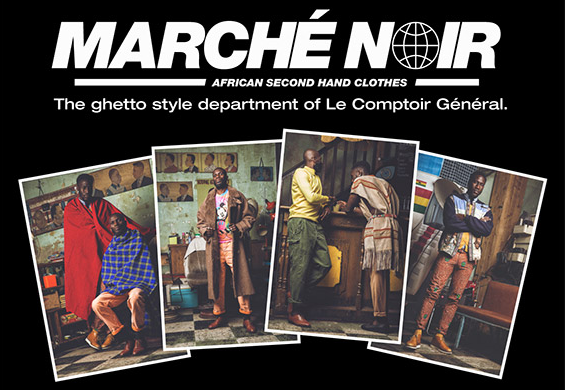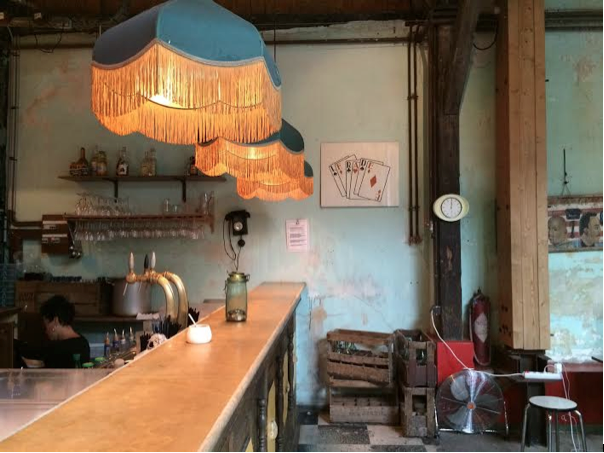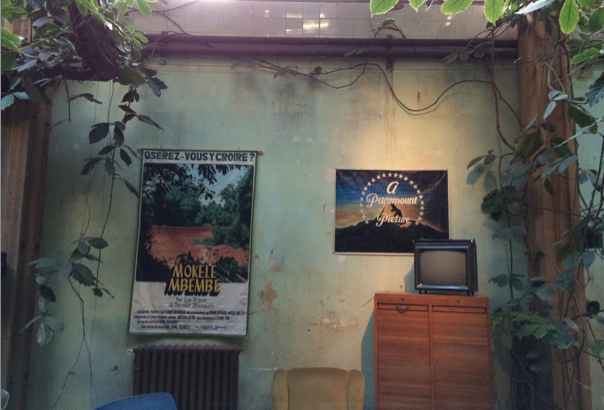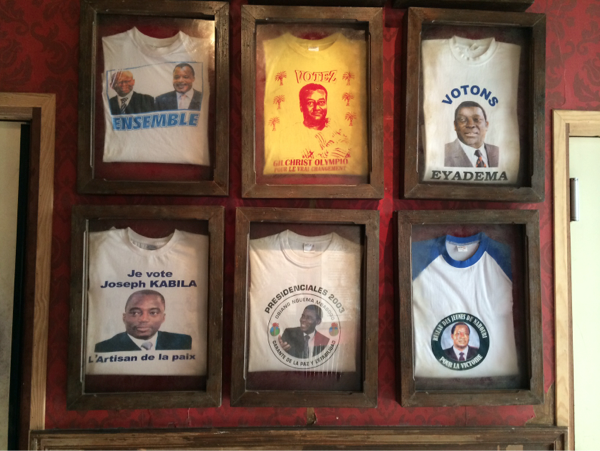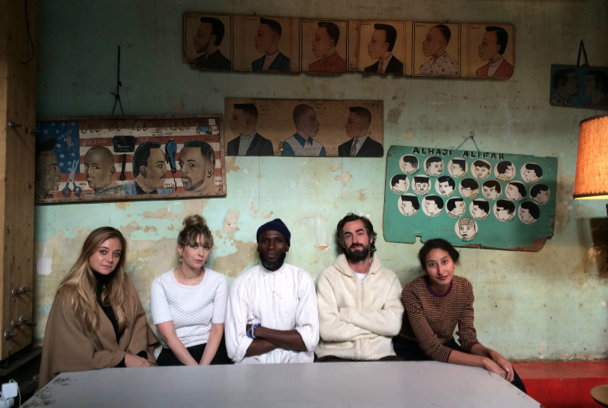Le Comptoir General: A Window to Marginalized Culture in Paris.
Hidden in plain sight next to the Canal St. Martin, is a place where curiosity and intrigue lead to Le Comptoir Général, the brainchild of Etienne Tron de Bouchony and Aurélien Laffon. The entrance, which is marked by a small plaque next to a mural, is hardly visible, meant only for those who know what they’re looking for. Some people call it a bar; others call it an African-themed gallery, and some know it as a thrift shop. What exactly is this place? I sat down with co-founder Etienne Tron de Bouchony, to shed some light on the mystery.
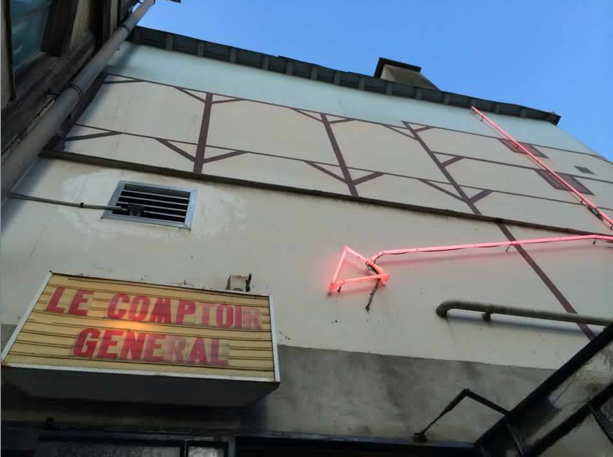
“Le Comptoir Général is more than a space,” Etienne explains. “The venue is merely a window to our world.”
Though it is largely known for its innovative way of celebrating African culture, there are other elements which make this place so unique. The world that Etienne alludes to is accessorized not only with vintage parlor furniture, but also with 80s film references such as early Spielberg and the Goonies. The inspiration comes from, according to Etienne, “a time when Hollywood directors could really tell a story and make you dream, on a low budget.” He states, “They say that the most striking discoveries you make in life are in your early teenage years. A lot of the films we watched when we were like 13 are still our biggest inspiration today.”
While the venue takes its visual inspiration from Hollywood film sets, the highlight of the venue is its focus on African culture. A closer look at the place reveals black hair-do posters next to the Spielberg ones, and portraits of past African presidents lining the corridor. Its central identity is unmistakably that of “ghetto museum”, a self-proclaimed label that the venue has coined and embraced as its own.
Etienne explains, “For me, ghetto is a term that adequately represents what is marginalized and in the shadows. I know this word can be shocking for Americans; in France it doesn’t have the same connotation.”
He specifies that, “it’s not just about African culture, but overlooked aspects of society in general. I use this term to describe our vision because I believe that within these marginalized parts of society, big changes, decisions and creative forces can emerge.”
Indeed, Le Comptoir Général serves a platform for approximately 10 in-house projects that involve other businesses. “We want to bring an entrepreneurial and artistic spirit to the charity world,” says Etienne.
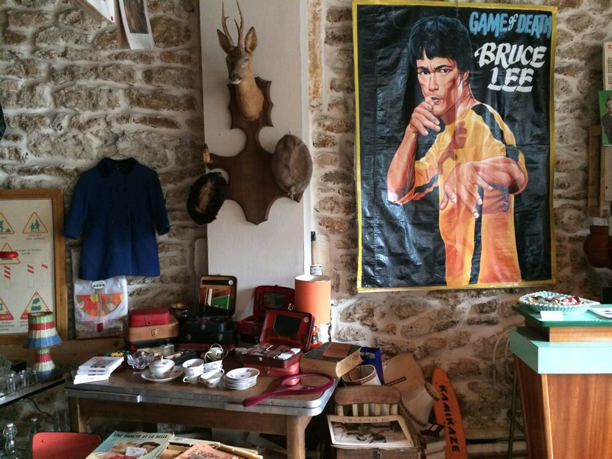
Center of Lost Properties
One of the projects, The Center of Lost Properties, focuses on supporting people known as les biffins, those who dig in the streets for things to re-sell. Bouchony says, “It’s a phenomenon that has been going on in France for a while. These people are seen as criminals, but we support them by storing their finds in warehouses and selling their ware for them. We want to turn them from criminals to heroes of the new recycling age.”
Marché Noir
Another is The Marché Noir, a fashion venture headed by Amah Ayivi, whom Bouchony jokingly labels “Mr. Fashion.” Located upstairs above the bar, Amah maintains a collection of carefully thrifted items from various cities in Africa. Here, you can find anything from colorfully printed dresses to rare Ghanian fútbol jerseys.
Secousse Music
The venue’s music venture is led by Etienne himself, a record label he founded called Secousse. He explains, “Secousse is my baby. I threw the first party in 2006. We did lots of parties since then, in Paris, but also in London and New York, and launched a web radio in 2011, eventually creating a record label the following year.” Etienne’s vast knowledge of music dates from his exposure to rap at the age of ten. “I grew up in a mixed neighborhood in the 80s, when black culture was in the charts, in films, in the streets.” Etienne, who also dj’s for Secousse, made a recent summer mixtape, which can be found online, a treasure trove of funk, Afro beats, hip hop and R&B.
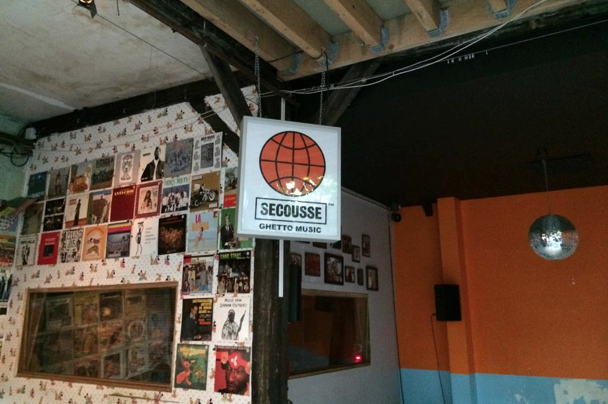
Looking for the Mokeme Mbembe
Perhaps the most adventurous project, Looking for the Mokeme Mbembe, is an innovative take on supporting Congolese locals. “We’re funding a French explorer, guided by locals, to track an animal in Congo myths, a kind of Loch Ness monster, but more plausible. We want to reinvest the money we make into protecting the forest and creating a sustainable economy for the locals.”
The success of the venue can be attributed largely to its immensely collaborative spirit. As Bouchony explains, what started off as 10 people has grown to almost 50. Staying true to their beliefs, the venue’s team consists of people from a variety of socio-economic backgrounds. He points out that, “Like I was saying before, a lot of people who have been through rough times have even more energy and ability to do great things. We look for people with strong personalities.” He tells me stories of some of his employees, including that someone he recently hired. “He arrived here from Egypt at the age of 18, who’s seen war and has lost his family, yet is the happiest and most energetic person I’ve ever met […] Of course, we have white, middle class employees as well,” he adds. “We live in a time where people don’t mix anymore– it’s more and more segregated everywhere, and we’re just trying to go against that.”
When asked about what he’s most proud of, Etienne answers, “The heroes of our projects; they’re the real deal. What I’m the most proud of is not necessarily specific events, but the people I’ve met. I’ve met people that I’ve dreamed of meeting my whole life, and I’ve already crossed some off the list. There’s a designer called Xulybet, who is the most famous African designer in Paris. There are rappers that come who I used to listen to when I was younger, like Mos Def.”
These heroes, be they heroes of recycling, Congolese locals, or hip hop artists visiting the venue, remain the central pride and motivation for Etienne. It’s clear that for Etienne Tron de Bouchony, what fascinated him as a child still continues to inspire him today. True to its name, Le Comptoir Général is a place where one can find pretty much everything. It’s a place with a specific vision yet without boundaries.
–> Learn more at Le Comptoir Général website.
Photos by Joan Lee. Cover photo is a screenshot of Le Comptoir Général Website.
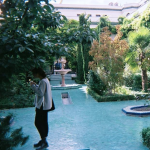
Written by Joan Lee. Joan studies English and Art History at the University of California, Berkeley. She currently resides in Paris, France.
